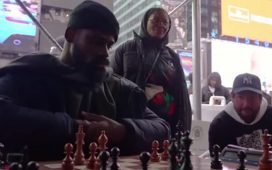For the children of the students, most of whom have died, this degree feels like “getting closure,” Dr. Larry Fujioka, a dentist in Hawaii, said. For him, this degree felt “much more meaningful” than any recognition that his father, John Masato Fujioka, one of the students to be honored, received in the past.
He said the school’s previous attempts to honor the displaced students, in 2008 and 2012, didn’t represent “a true apology and a true gesture by the university to really come to grips about what they had done.”
Dr. Fujioka, 68, said his father “never held a grudge against U.S.C., despite what they did.” He rarely talked about what came after Executive Order 9066, but he always wore his U.S.C. sweatshirt.
“He always felt like a U.S.C. man,” Dr. Fujioka said. “I think he’d be very happy with this.”
Joanne Kumamoto said her father, Jiro Oishi, would be very happy with the news, but for her, it is a bittersweet moment. Her father died in 2002, so he was not recognized in the previous ceremonies.
A Rise in Anti-Asian Attacks
A torrent of hate and violence against people of Asian descent around the United States began last spring, in the early days of the coronavirus pandemic.
-
- Background: Community leaders say the bigotry was fueled by President Donald J. Trump, who frequently used racist language like “Chinese virus” to refer to the coronavirus.
- Data: The New York Times, using media reports from across the country to capture a sense of the rising tide of anti-Asian bias, found more than 110 episodes since March 2020 in which there was clear evidence of race-based hate.
- Underreported Hate Crimes: The tally may be only a sliver of the violence and harassment given the general undercounting of hate crimes, but the broad survey captures the episodes of violence across the country that grew in number amid Mr. Trump’s comments.
- In New York: A wave of xenophobia and violence has been compounded by the economic fallout of the pandemic, which has dealt a severe blow to New York’s Asian-American communities. Many community leaders say racist assaults are being overlooked by the authorities.
- What Happened in Atlanta: Eight people, including six women of Asian descent, were killed in shootings at massage parlors in Atlanta on March 16. A Georgia prosecutor said that the Atlanta-area spa shootings were hate crimes, and that she would pursue the death penalty against the suspect, who has been charged with murder.
“I’m really happy for my dad because I know this is something he really wanted,” Ms. Kumamoto, 76, said. For as long as she could remember, he was proud to be a Trojan. He wore the school colors, cardinal and gold, and had season tickets to U.S.C. football and basketball games. It wasn’t until Ms. Kumamoto was in high school that she found out her father did not graduate from U.S.C.
“Personally, I’m a little more, you know, sorry that this didn’t happen earlier,” she said. “But I’m trying to stay positive, because I think it’s a good step for U.S.C.”
Mr. Kaji said a lot had changed since 2007, like the new president’s openness to addressing racist chapters of U.S.C. history. But mostly what has changed is context, he said.






